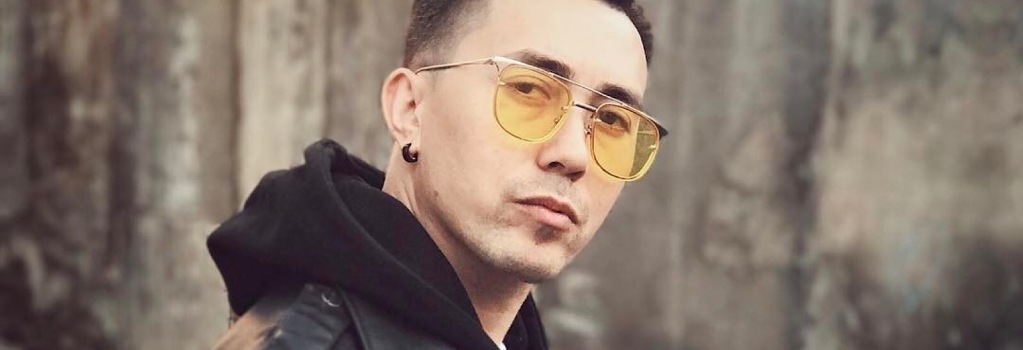A Uyghur pop star in northwest China’s Xinjiang Uyghur Autonomous Region (XUAR), who had worked to bridge the divide between his ethnic group and the country’s Han Chinese majority, is missing and believed detained in a “political re-education camp,” according to sources.
Ablajan Ayup, 34, known as the “Uyghur Justin Bieber,” was taken into custody by a state security unit in the XUAR capital Urumqi on Feb. 15 as he returned from Shanghai, where he had traveled to perform as part of a music tour, a friend told RFA’s Uyghur Service, speaking on condition of anonymity.
The friend said that Ayup’s arrest followed a “brief detention and questioning in December 2017,” although he was unsure of why the singer, who is also known as “AJ,” had been investigated at the time.
According to his friends on WeChat, Ayup last posted to the social media site on the evening of Feb. 14, and has neither performed nor been heard from since.
Police in Urumqi’s Tianshan district and in Hotan (in Chinese, Hetian) prefecture’s Guma (Pishan) county, where Ayup is from, told RFA that they are aware of who he is, but could not confirm that he had been detained.
But a police officer in Guma’s Chawda township acknowledged that authorities in Ayup’s nearby home township of Sanju had briefly detained him there at the end of last year.
“I know he was arrested, but I don’t know where he was held,” the officer said, before referring additional questions to the Sanju township and Guma county police.
Since April 2017, Uyghurs accused of harboring “strong religious views” and “politically incorrect” views have been jailed or detained in re-education camps throughout the XUAR, where members of the ethnic group have long complained of pervasive discrimination, religious repression, and cultural suppression under Chinese rule.
China’s central government authorities have not publicly acknowledged the existence of re-education camps in the XUAR, and the number of inmates kept in each facility remains a closely guarded secret, but local officials in many parts of the region have in RFA telephone interviews forthrightly described sending significant numbers of Uyghurs to the camps and even described overcrowding in some facilities.
Maya Wang of the New York-based Human Rights Watch told The Guardian in January that estimates of XUAR residents who had spent time in the camps went as high as 800,000, while at least one Uyghur exile group estimates that up to 1 million Uyghurs have been detained throughout the region since April 2017, and some Uyghur activists say nearly every Uyghur household has been affected by the campaign.
Last month, U.S. Senator Marco Rubio and U.S. Representative Chris Smith—the chair and co-chair of the Congressional-Executive Commission on China—called on U.S. Ambassador to China Terry Branstad to visit Xinjiang and gather information on the detention of Uyghurs, which they termed “the largest mass incarceration of a minority population in the world today.”
Popular singer
Ayup was born in Sanju township in 1984 and relocated to Turpan at the age of 15 to study art. He returned home and worked as a teacher while writing music on the side until 2006, when he got a break and became a nationally recognized performer.
Drawing inspiration from his idol, Michael Jackson, Ayup wrote songs about education and Uyghur identity, and became very popular among Uyghurs—particularly children.
He rarely discusses politics, but has nonetheless run afoul of the authorities, as noted in an article about him byTime magazine in 2014.
After ethnic violence in July that year left at least 100 people dead outside of the city of Kashgar (Kashi), according to state media, authorities shut down a concert Ayup had planned to hold in Urumqi that was to be a display of ethnic unity, less than an hour before showtime. The singer responded by posting a picture of himself on Instagram with a caption that read “I am not a terrorist!”
In July 2017, University of Washington anthropologist Darren Byler wrote about how Ayup generally “demonstrates a careful awareness of the desires of both his audience and his censors,” saying that in doing so, “he is able to continue to inspire hope in his audience of young Uyghurs.”
But for Uyghurs in the XUAR, toeing the line is no easy task, particularly since regional party chief Chen Quanguo was appointed to his post in August 2016 and embarked on unprecedented repressive measures against members of the ethnic group.
One of Ayup’s friends on social media speculated that he may have been detained because he had once traveled to Malaysia—one of dozens of countries authorities say are off limits to Uyghurs because of the risk of “extremist” Muslim indoctrination. Others suggested that he had been targeted for his work with a charity that benefited Uyghurs, or because of his love for Uyghur heritage.
In speaking with Byler last year, Ayup indicated that despite his efforts to avoid controversy, he was coming under increasing scrutiny from authorities.
“Actually I am just a singer not a politician,” he said at the time. “I only know about music.”
Source: rfa.org

Leave a Reply